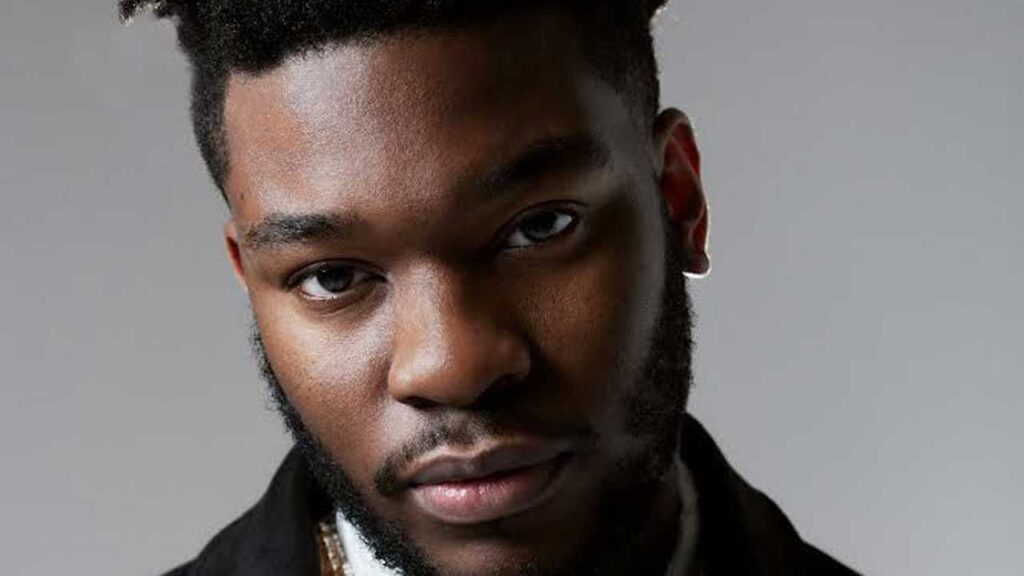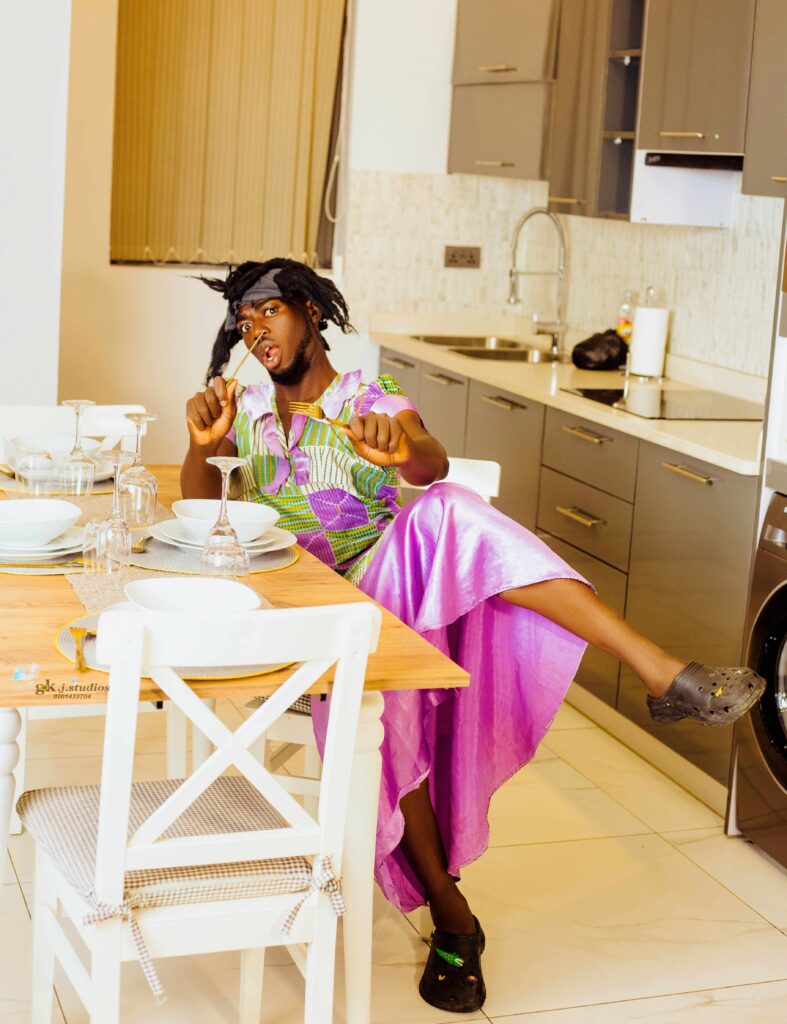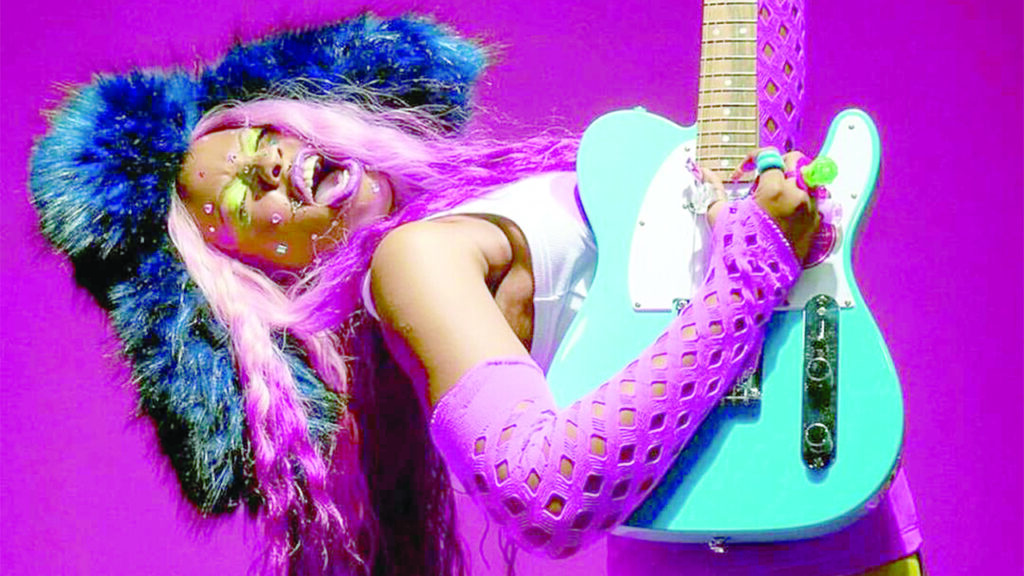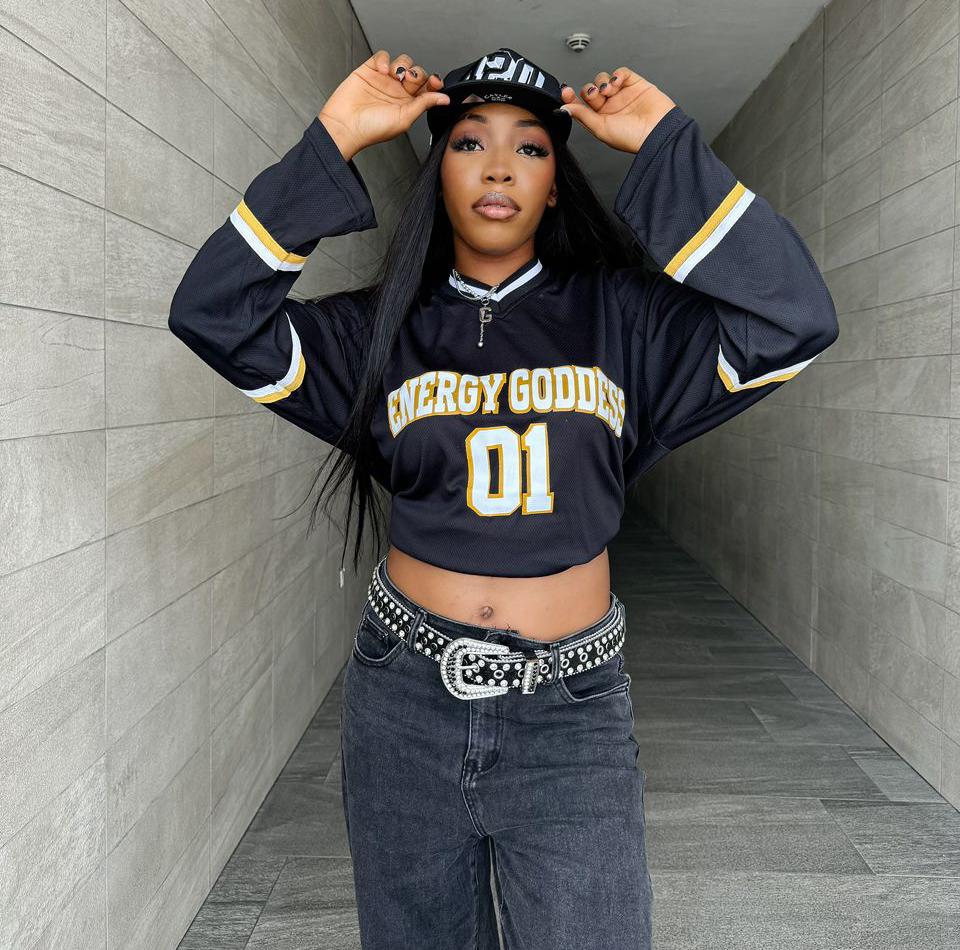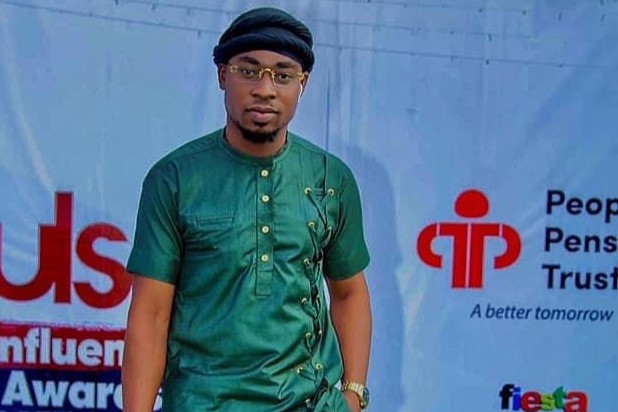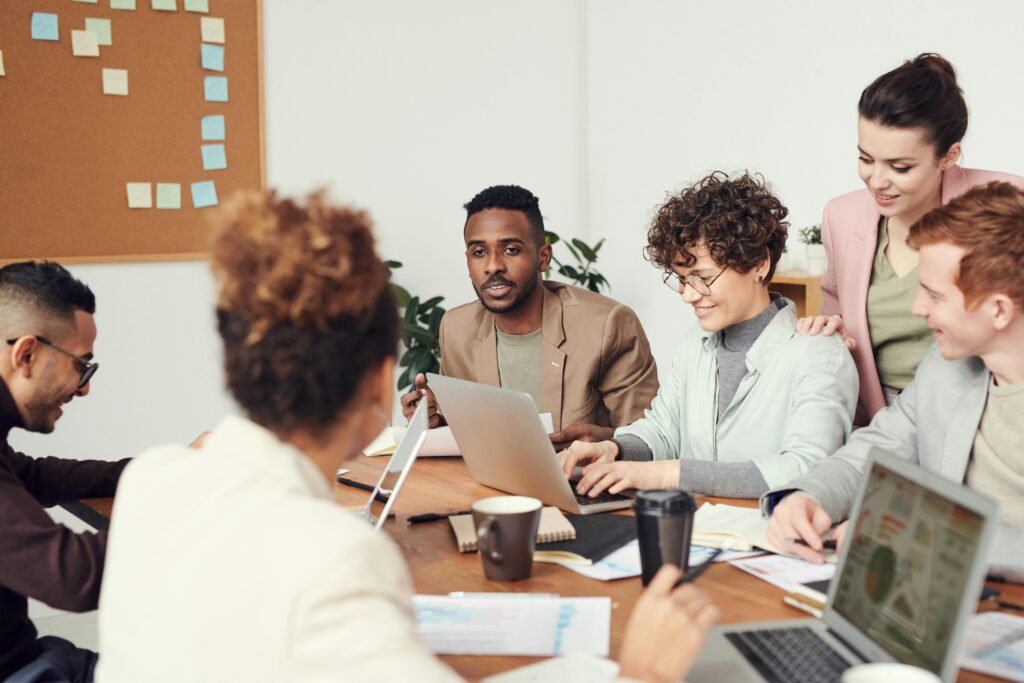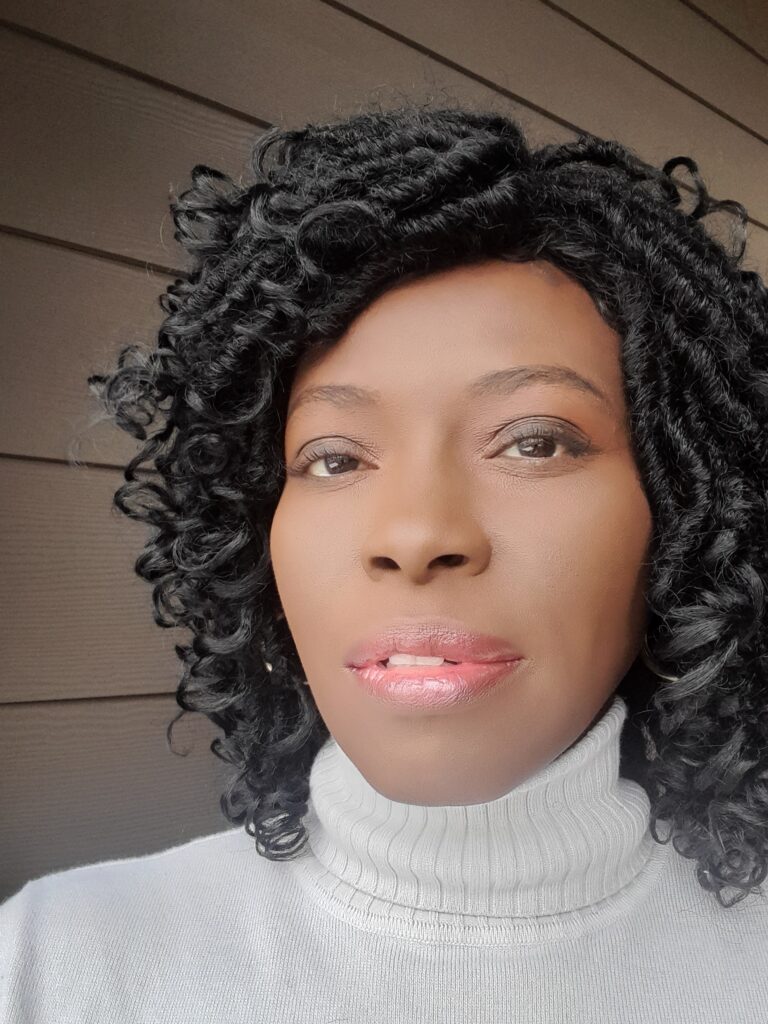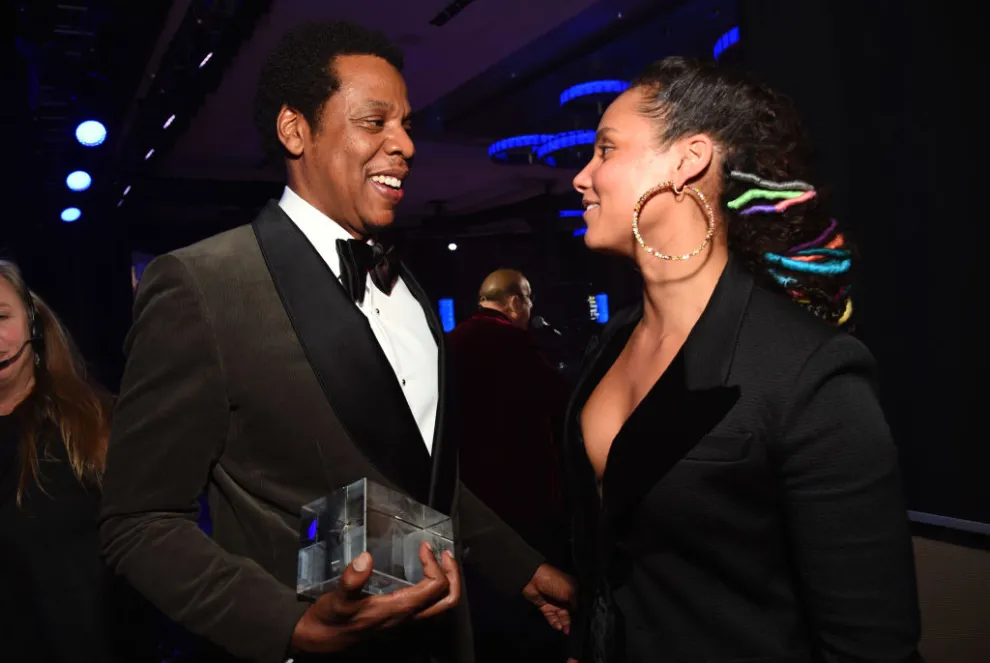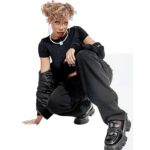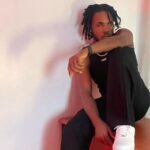 Around 2015, a bright-eyed Nonso Amadi broke into the Afrobeats limelight with a hit song dubbed “Tonight.” It was hot on the heels of his daring debut titled Alone. It was an exciting era for niche RnB storytellers like Nonso Amadi, Funbi, Odunsi, and a host of others who surfaced on the radar of mainstream Afrobeats.
Around 2015, a bright-eyed Nonso Amadi broke into the Afrobeats limelight with a hit song dubbed “Tonight.” It was hot on the heels of his daring debut titled Alone. It was an exciting era for niche RnB storytellers like Nonso Amadi, Funbi, Odunsi, and a host of others who surfaced on the radar of mainstream Afrobeats.
Amid the career jamboree he was having at the time, four years later, Nonso Amadi radically announced a hiatus from social media and, by extension, his blossoming music career. He had just dropped a stimulating sophomore solo EP- Free, and it was almost as if he desperately needed a bit of that freedom. While that development saddened his expanding fan base, he remained faithful to that break, until last year when he returned with a smash single, which he titled “Foreigner”.
Nonso’s comeback was foolproof of his unflinching importance to the next era of Afrobeats. Melding urban RnB influences with mostly soul and pop elements, his sonorous voice easily earmarked him as a force to reckon with within the annals of African music.
Following up with a duet with the Canadian duo Majid Jordan dubbed, “Different,” Nonso’s return was heavily anticipated by lovers of Afrobeats. His status as one of the “pioneers” of this current wave of RnB musicians performing optimally across global markets seems cemented now with his magnum opus, When It Blooms. This debut album from the 27-year-old musician and philanthropist marks the bullish return of this bohemian singer, producer, songwriter, and mix engineer, to an era of Nigerian music that has never been more eager to accept his sound than now.
Catching up on an exclusive with The Guardian Music, the maestro unpacks his just-released 15-tracker album, including guest features from Nigerian Grammy-nominated Afro-fusionist, Tay Iwar, Jamaican-American maestro BEAM, and English chanteuse Tamera, among others, as well as commentary from Bob Marley’s granddaughter, Donisha Prendergast, and his mother.
He peels back frenzied memories of his come-up, reminiscing on his first studio sessions in Ikeja, second-guessing his career in Canada, and making his third and latest solo project during the pandemic.
For Nonso, apart from stamping his footprint as a free-spirited, and relatable voice, he’s also passionate about providing free education to indigent kids, as he does with his non-profit organisation, The Hills Foundation. Tripoding his life around these totems of hedonism and philanthropy, he answers his ‘Why?’ – the very existential question that sparked his hiatus in 2019. And he intimately shares the process behind that epiphany, as well as other exciting facets of his artistry including his creative process, influences, visions, and so much more.
So, When It Blooms is your long-awaited debut album and comeback. How does it make you feel?
It feels great. I would not say I am nervous, but I was anticipating the reaction from people who have been waiting for a long time. It is the fact that everyone is out here showing love and everyone is taking the album in properly is just so amazing.
Why were you off the scene for that long?
I was figuring out my why. It was not meant to be that long, but the pandemic hit and I knew I needed more time. I was mixing, mastering, and doing everything myself. So, I had to develop a strategy and I needed a team. I needed to find a ‘why’ before I came back.
If we are looking at your discography, what have you been trying to sing about?
For me, the main thing is learning how to tell true stories about myself. For a lot of young musicians, we start with exploring stories about love and money. However, to be a truly elite musician and stand the test of time, you need to be telling your own stories. Bob Marley sang about Trench Town, where he is from. Fela Kuti sang about Lagos. I was always trying to figure out how to tell my own stories with RnB music. It is not as easy as it sounds. I literally was getting there and I felt like I was mastering that with this project.
So, why did you title it When It Blooms?
It’s simply a symbolism of my journey in the industry. When I started, I was shy, young, and learning. That was like a seed. You put a seed in the ground and then it gets to a point when it becomes a flower. So, I have bloomed and left that seed stage. I am more thankful. I am growing.
Are you a plant lover?
I am, but I don’t have any. I have not grown any.
So, you have some sort of ‘lightness’ to your album.
When I started, my music was a bit darker. I wanted to make songs about heartbreaks; I wanted to talk about sadness. Songs like “Tonight” were kind of deep and all. It’s like saying, ‘You don’t want me, basically.’ Other songs like “No Crime” are the same. It’s like being a hopeless romantic. I realised that I don’t want to be too much into that lane. It’s still equally cool, but now I want to have some bright elements in my life.
When did you decide to go into music professionally?
I literally was thrown into it. I didn’t want to be a musician from the jump. I was in school when I released “Tonight.” I was a SoundCloud guy and was just recording and releasing music weekly on the platform when I was at Covenant University in Nigeria. Afterward, I went to the United Kingdom to school too. And by the time “Tonight” took off, I was still in school. I made a song with Juls called “Radio,” and it also did its thing. It was like I was not sure of what I was doing; I just knew that I was making music and people liked it. In terms of actually making it consistently until it gets to a point where you can actually make an album with different producers, I couldn’t do that at the time. It was just me mixing and recording. I was just super excited. It was a new period and a very interesting time for Nigerian music.
You produce, record, write, mix, and master music. Did you train somewhere?
It was just YouTube. I would literally just go on YouTube and figure out how to make instrumentals. I remember importing Davido’s “Dami Duro” on FL Studio and I tried to make it exactly how Shizzy made it. I also remember playing it for my guys and they were shocked. Learning how to make my favourite songs was how I learned production. I also learned how to record by myself; I googled how to mix my vocals and all that. I started producing for people too, but it was very exhausting. I didn’t know how to charge people. I was in school then so I didn’t really care. After then, I just stopped recording for people and started focusing on myself.
Does Davido know about that story?
No, he doesn’t. This is the first time I am ever saying it. That was like the early days at Covenant University. That was how we started learning.
Is music now full-time for you?
Right now, music is full-time for me. The album is one of many to come. It has taken a while for me to see the focus. I previously considered branching out into other things, but it is still too early so we need to work. Then, if I want to relax and diversify I can do that.
What were your earliest influences in music?
At the time, it was Davido, Wizkid, Craig David, Alicia Keys, Usher. I love the fact that their music was so deep. I remember one song called “Burn.” I rinsed (listened on repeat) the hell out of that song. T-pain was huge back then. I remember buying books on lyrics and seeing all those lyrics. It had everyone in them. We would cram Lil Wayne’s songs and learn. I also listened to Asa, 9ice, and a lot of them.
You are very niche in your collaborations. How involved were you in these duets?
I was very involved. I remember personally reaching out to a lot of artistes to see who would fit the vision of the album. We got some records, but we selected only the ones that fit the scope of this record. There are so many songs that did not make the album, although. There are still other features I ended up not using. It is just the debut album, let’s just start here.
Tell us about your favourites in the album, and how you made them.
I know there’s “Thankful.” Then, “Lock Up” with Zinoleesky, and “Paper.” I made “Lock Up” in Nigeria, but I played it for Zino’s manager in Cotonou when we met at a recording camp. She really liked the song. I gave her the song and left it. I got a FaceTime call from Zino the next day, dancing to my song. It was super organic. We didn’t force the collaboration. With “Thankful,” I knew I wanted to make a song like “Shout Out” by Wizkid. I wanted to make a song that had that same positive energy, thanking people. I feel like I wanted to have the same prophetic feel Wiz had on the Superstar album, and have all of that light on my project. We made “Thankful” and I asked my mum to make a voice note to it. It is one of my favourite sounds. Then, “Paper” was produced in London. I played him the album, and I told him what I wanted to achieve. He played me a soft beat and I started singing to it. The next thing, he started playing these Amapiano drums and then we forgot about that soft jam. The energy in that song was from the jump.
What’s your creative process like?
I love to think and process what I want to do, but the best way to process music is with the energy that comes right away. If someone came here with an instrumental and everyone was just vibing to it, then someone starts freestyling. You cannot replicate that energy. The thing with taking your time to make a song is that you make deeper music that way. I think both approaches work for different reasons. Generally, I enjoy making music spontaneously.
How do you stay relatable with your style of music?
It’s a question that a lot of artistes have to ask themselves a lot of times. Are you making music for yourself or your fans? If I am making music for myself, then I do not have to stress about whether they are understanding the music or not. If I am making music for Sudanese people, then I would make music that Sudanese people understand. So, it’s a balance. On some songs, we focus on the Nigerian audience. For instance “Lock Up.” We wanted to make a hit at home. However, most of the album is for me. It’s almost as if I am writing my autobiography. It’s like using songs to say, ‘On this day, Nonso Amadi did this and that.’ I can’t make it for the fans alone. The music is also an extension of myself. However, in that ‘autobiography,’ I am still giving stuff to people.
Do you label yourself an ‘alte’ artiste?
I cannot put myself in a box. There is a Hip Hop song on the project. There is also an Amapiano song on the record. Generally, I love RnB. I also love Afrobeats.
Contemporarily, whom can you collaborate with?
Someone like Burna Boy would be ‘fire.’ I love Tems; I love Wizkid, and Davido, as well. I just want to work. I am a big fan of everyone. I love Rema too.
What’s your personality like?
I am very chilled. I don’t go clubbing. I don’t drink or smoke either. I am just on my own. I love to play video games, like FIFA. I love making music. Apart from making music, I am usually somewhere quiet. I don’t like noise.
Are you in any relationship?
I am in love with every girl. I have so many girlfriends and wives out there.
So more people can apply, right?
I mean, the entries are closed for now. When there are more admissions, we would call.
Did you ever have a celebrity crush?
Not really. I get turned off by people who are in the public light. My whole life is private. If I see that everybody knows you and they are on your case, I would just leave.
What is your favourite part of your artistry?
For me, it is songwriting. I enjoy production a lot, but then songwriting feels like you are birthing something to the world. It’s amazing.
Tell us about a core music memory you have.
My first time entering a studio. It was in Ikeja. I went with my younger brother. It was down the street from our house. The guy was nice to us. He was bragging about the people he had recorded. I recorded a song. The song was terrible. He kept encouraging me. I finished and I was like, ‘How can I get the song?’ He was like, ‘You go pay o! Na 10,500!’ I was just a kid! I was still in Secondary school. I told him that I did not have money and asked if he was going to give me the audio like that. I never got the song. I am glad that I didn’t get the song, though. I remember where the studio was. I still even remember the studio name.
Any crazy fan experiences?
I get crazy Dms. I just laugh and screenshot it for proof.
Now, what’s next for you?
When It Blooms is the entry point. It is my introductory body of work. If anybody says, ‘Yo, this Nonso Amadi guy, who is he?’ The album is the starter pack. So, where does that go? Do we keep telling the story? That is what I want to do. I also want to experiment a bit more. I want to see where else I can take the sound. In the Afrobeats industry, this type of art is very different from a lot of albums we get. We want to keep experimenting, to keep that freshness. There is storytelling. There is spoken word poetry. There are a lot of efforts in that.
Any shows?
We are going to have a show in Lagos too this year. I want to perform the album. I want to bring everything to life. I want it to feel like you are watching a movie, like coming to a show. It would be amazing.
What’s the vision for your brand?
My vision is to become a legacy artiste, and not just like someone that sang songs. I want to be like Fela Kuti or Bob Marley and that takes creating a legacy. So, it takes more than just music. It’s like building a community. I started a foundation because of this. It’s called The Hills Foundation. Part of the revenue from this album would go straight to charity. We are empowering young kids in Lagos that need education. My whole music career is dedicated to that. That is my ‘why.’ I took that 2-year loop to figure out why I am doing this music thing. I am passionate about young kids. I went to Covenant, Swansea and there are people that haven’t had the opportunity to go to school.
Finally, describe yourself in a phrase.
I am just a young Nigerian trying to figure out life and my music career.

